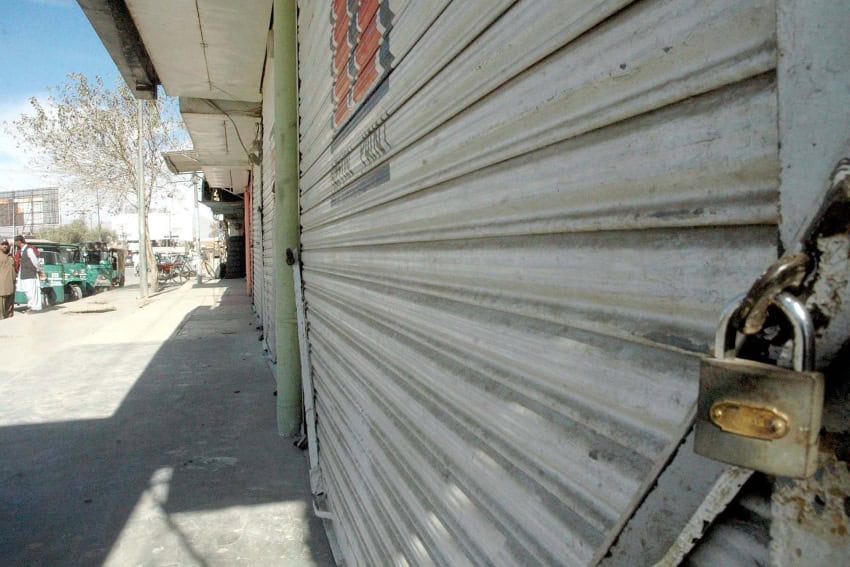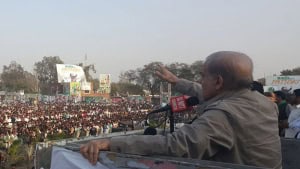LAHORE – Traders are observing complete shutter-down strike nationwide today against the Pakistan Tehreek-e-Insaf (PTI)-led federal government for imposing ‘unfair taxes’ and ineffective economic policies.
Earlier, the All Pakistan Anjuman-e-Tajran (APAT) had announced a nationwide shutter-down strike from July 13 against the government for a hike in sales tax in the federal budget.
Traders in Karachi, Lahore, Peshawar, Multan and DI Khan are observing massive shutter down, however, a rift emerged amongst traders in Karachi as several parts of the markets remain open.
While addressing a press conference in Islamabad, All Pakistan Anjuman-e-Tajiran (APAT) chairman urged Prime Minister Imran Khan to bring in a ‘fixed tax system’ in the country.
APTA All Pakistan Anjuman-e-Tajran (APAT) and the Tajir Action Committee has announced the strike, which has massive support of the traders.
The chairman refuted the impression that the traders’ unions were launching a strike on behalf of any political party and challenged Federal Bureau of Revenue (FBR) Chairman Shabbar Zaidi for a debate over the claim that some political party has pushed traders for the strike.
In Lahore, most traders’ associations and organisations have announced to observe shutter-down across the city on Saturday (today) in protest against the taxes imposed by the federal government in budget 2019-20.
In Karachi, the traders’ associations and organisations have divided into two groups for observing the strike. The first group which has most of the support called to keep their shutters down is being led by the All Pakistan Anjuman-e-Tajiran and the Karachi Tajir Ittehad.
The second group under the umbrella of the Karachi Tajir Action Committee (KTAC), including the Electronic Market Association, Sindh Tajir Ittehad, Tajir Associations of the Old City area and Medicine Market Association have decided to oppose the call for the strike.
In Faisalabad, major business markets across the city remain closed today.
Traders and businessmen have called a strike against the imposition of 17 per cent sales tax in the tribal districts as well, with as many as 35 steel mills reportedly shut down in the tribal regions.
















